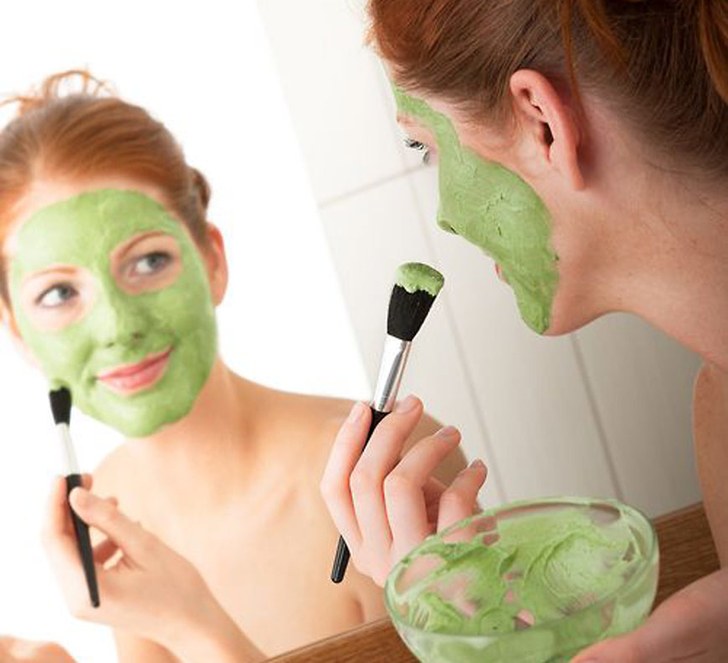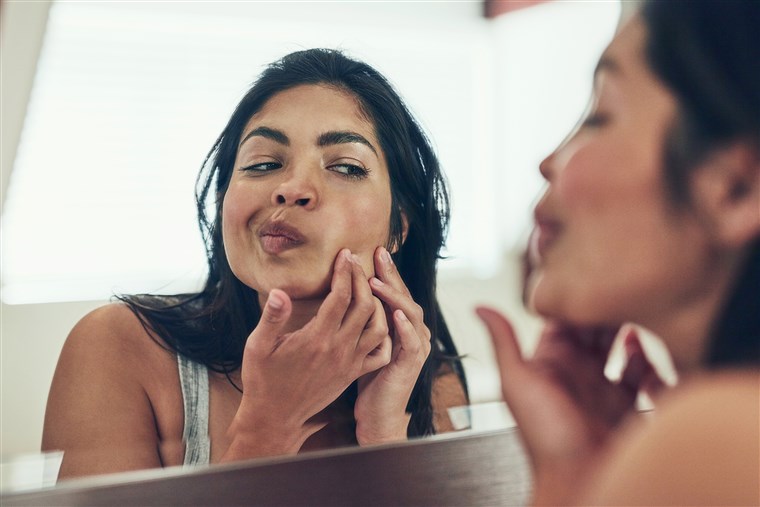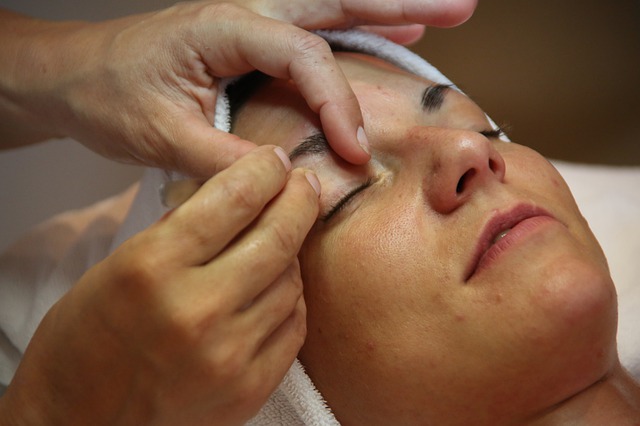
Introduction
Skin care is an essential part of overall health and wellness. The skin is the body’s largest organ, serving as a barrier against environmental stressors, regulating temperature, and maintaining hydration. A consistent skin care routine not only improves appearance but also promotes long-term skin health. Modern skin care combines scientific research, dermatological expertise, and natural remedies to address issues such as aging, acne, dryness, and hyperpigmentation. Understanding the best practices, products, and routines is crucial for achieving healthy, radiant skin.
Understanding Skin and Its Types
Before establishing a skin care routine, it is important to identify your skin type, as each type has unique needs.
1. Normal Skin
- Balanced texture and tone
- Minimal sensitivity
- Benefits from gentle daily cleansing, hydration, and sunscreen
2. Dry Skin
- Feels tight and may show flakiness
- Prone to premature aging and irritation
- Requires rich moisturizers, hydrating serums, and avoidance of harsh cleansers
3. Oily Skin
- Shiny appearance, enlarged pores, prone to acne
- Benefits from oil-free moisturizers, salicylic acid treatments, and regular exfoliation
4. Combination Skin
- Mixture of dry and oily areas, usually dry cheeks with oily T-zone
- Requires targeted care for different areas using lightweight moisturizers for oily zones and richer creams for dry areas
5. Sensitive Skin
- Easily irritated, redness, and reactions to products
- Requires hypoallergenic, fragrance-free products and patch testing before using new products
Key Skin Care Steps
1. Cleansing
Cleansing removes dirt, excess oil, and pollutants:
- Use gentle cleansers suitable for your skin type
- Double cleansing with an oil-based cleanser followed by a water-based one is effective for removing makeup and impurities
- Avoid harsh soaps that strip natural oils
2. Exfoliation
Exfoliation removes dead skin cells and promotes cell turnover:
- Physical exfoliants (scrubs) should be gentle to prevent micro-tears
- Chemical exfoliants (AHAs, BHAs) are effective for deep cleansing and treating acne or dullness
- Frequency: 1–3 times per week depending on skin sensitivity
3. Toning
Toners help balance skin pH and prepare the skin for serums and moisturizers:
- Choose alcohol-free toners to prevent dryness
- Ingredients like witch hazel, rose water, and hyaluronic acid provide hydration and soothing effects
4. Serums and Treatments
Serums target specific concerns such as pigmentation, aging, or acne:
- Vitamin C serums for brightening and antioxidant protection
- Retinol or peptides for anti-aging and skin renewal
- Niacinamide for reducing pores and regulating oil production
5. Moisturizing
Moisturizers maintain hydration and support skin barrier function:
- Lightweight gels for oily skin
- Rich creams for dry or mature skin
- Ingredients like hyaluronic acid, ceramides, and shea butter are highly effective
6. Sun Protection
Sunscreen is essential for preventing premature aging, pigmentation, and skin cancer:
- Broad-spectrum SPF 30 or higher daily
- Reapply every 2–3 hours when exposed to sunlight
- Use physical sunscreens with zinc oxide or titanium dioxide for sensitive skin
Advanced Skin Care Techniques
1. Facial Masks
- Clay masks for oil control
- Hydrating masks with aloe vera or hyaluronic acid
- Sheet masks for nutrient infusion
2. Chemical Peels
- Mild peels can reduce hyperpigmentation and improve texture
- Professional peels offer deeper exfoliation for long-term results
3. Microneedling
- Stimulates collagen production and improves firmness
- Effective for acne scars, fine lines, and skin texture
4. Laser Treatments
- Target pigmentation, vascular lesions, and wrinkles
- Requires professional evaluation for safety and effectiveness
Lifestyle Factors for Healthy Skin
1. Diet and Hydration
- Include antioxidants, vitamins (A, C, E), omega-3 fatty acids
- Reduce sugar and processed foods that contribute to inflammation
- Drink adequate water for skin hydration and detoxification
2. Sleep and Stress Management
- 7–9 hours of sleep for skin regeneration
- Stress management through meditation, yoga, or mindfulness reduces cortisol, which can exacerbate acne and aging
3. Avoiding Harmful Habits
- Avoid smoking and excessive alcohol consumption
- Limit exposure to pollutants and harsh weather conditions
- Regular exercise improves circulation and skin vitality
Common Skin Issues and How to Address Them
1. Acne
- Causes: Excess oil, bacteria, hormonal fluctuations
- Treatment: Benzoyl peroxide, salicylic acid, topical retinoids, and professional guidance
2. Hyperpigmentation
- Causes: Sun exposure, acne scars, hormonal changes
- Treatment: Vitamin C, niacinamide, chemical peels, and consistent sunscreen use
3. Dryness and Flakiness
- Causes: Low humidity, harsh products, dehydration
- Treatment: Moisturizers with humectants and occlusives, hydrating masks, gentle cleansers
4. Aging and Wrinkles
- Causes: Sun exposure, loss of collagen, lifestyle factors
- Treatment: Retinol, peptides, antioxidant serums, and professional treatments like microneedling
5. Sensitive Skin Reactions
- Causes: Allergens, harsh ingredients, over-exfoliation
- Treatment: Patch testing, calming serums, fragrance-free products, and minimal product layering
Building a Skin Care Routine
Morning Routine
- Cleanser
- Toner
- Serum (Vitamin C)
- Moisturizer
- Sunscreen
Evening Routine
- Double cleanse (oil-based + water-based cleanser)
- Toner
- Treatment serum (retinol, peptides, or niacinamide)
- Moisturizer or night cream
Weekly Add-ons
- Exfoliation 1–3 times per week
- Masks 1–2 times per week
- Professional treatments if needed
Conclusion
Effective skin care is a combination of consistent routines, suitable products, professional guidance, and a healthy lifestyle. By understanding skin types, using targeted treatments, protecting from sun damage, and maintaining hydration and nutrition, anyone can achieve healthier, radiant skin. Long-term skin care is not just about appearance; it supports overall well-being and confidence. Regular evaluation of skin needs and adapting routines to seasonal changes or aging ensures optimal results.
FAQs
1. How often should I change my skin care products?
Evaluate your skin every 3–6 months or when facing new concerns. Seasonal changes and aging may require adjustments.
2. Can natural remedies replace professional skin care products?
Natural remedies can complement routines but may not address all skin concerns. Use clinically proven products for specific issues like acne or aging.
3. Is it necessary to use a toner?
While not mandatory, toners help balance pH, hydrate, and prepare the skin for serums and moisturizers.
4. How can I prevent premature aging?
Daily sunscreen, antioxidant serums, healthy diet, adequate sleep, and avoiding smoking are key preventive measures.
5. Are chemical exfoliants better than scrubs?
Chemical exfoliants provide deeper, uniform exfoliation without the micro-tears that harsh scrubs can cause, especially for sensitive skin.
6. How can I reduce acne scars effectively?
Topical treatments with retinoids, chemical peels, microneedling, and professional guidance are effective for minimizing scars.
7. Can men follow the same skin care routines as women?
Yes, basic skin care steps—cleansing, moisturizing, sun protection—apply to all genders. Products may vary based on personal preference and skin type.










